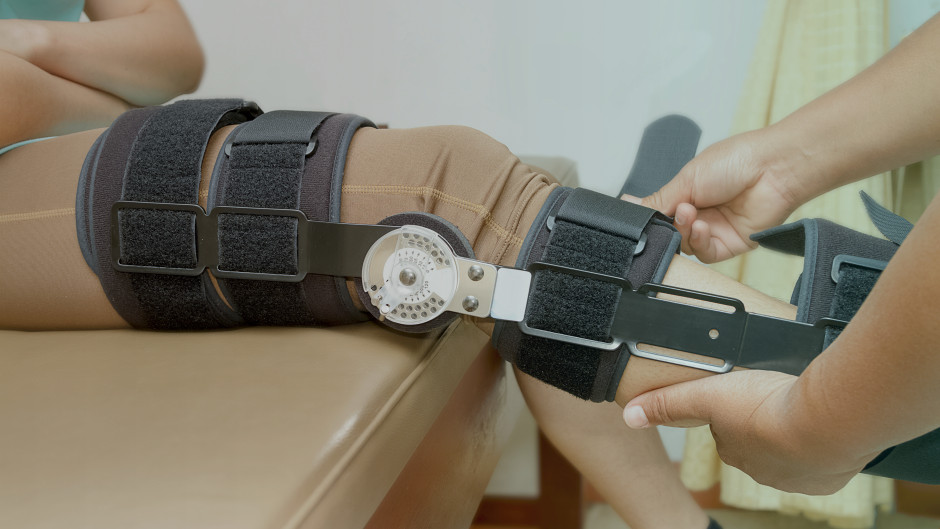Behaviour change and Motivational Interviewing
Behavior change and Motivational Interviewing
Plenty of people are being treated for chronic or persistent injuries/diseases worldwide. A lot of these injuries are due to our lifestyle. We live a passive lifestyle, where most people don’t move enough, eat too much or unhealthy, consume too much alcohol and still too many people smoke.
Almost everybody knows what a healthy life should look like. Unfortunately it’s not that easy to bring this information into practice and especially for the long term. If we would like to change this, we need to change our behavior. A step by step approach, which is sustainable for the long run. In an ideal scenario, this would lead to fewer injuries and diseases and therefore fewer costs for healthcare and society. And maybe the most important: A better quality of life.
Here comes motivation interviewing into play…
If you want to learn more about Motivational Interviewing, you can subscribe and watch the lecture of MI co-founder Stephen Rollnick here: Click here
What is Motivational Interviewing?
“MI is a collaborative, goal-oriented style of communication with particular attention to the language of change. It is designed to strengthen personal motivation for and commitment to a specific goal by eliciting and exploring the person’s own reasons for change within an atmosphere of acceptance and compassion.” (Miller & Rollnick, 2013)
Behavior change isn't easy. Often people see the advantages of change but the disadvantages are to strong. A physiotherapist can use motivational interviewing to discover this ambivalence in a guiding way and search for a solution. An important factor is that the patient has autonomy over his choices. Besides the autonomy a patient must feel free to speak and share his thoughts without any judgmental attitude from the therapist or without putting any words into his/her mouth.
Motivational interviewing consist of 4 core elements:
Acceptance = It is important that everything can be said or discussed. There should be no judgement of any thoughts or ideas.
Collaboration = The healthcare professional is the expert in his/her field, but the patient is the expert in his/her life. If they can work together it is possible to make progress and aim for the goals in mind.
Compassion = Compassion means that the healthcare professional will do everything to help the patient with the knowledge and expertise that he/she has. This means that the therapist probably will direct the conversation to healthy behavior choices for the wellbeing of the patient.
Evoke = With motivational interviewing you can evoke the priorities of a person and try to find the reason why they do the thing they do. It’s valuable to find out what arguments and ideas exist around certain behaviors.
How does this look in the physiotherapy profession?
A physiotherapist helps people with pain or injuries which are movement related. If the problems are there for a longer period of time, it is possible that there are some prognostic factors which slow down the recovery. A big factor here is lifestyle. It’s not only the amount of movement and training that somebody has, but also weight, nutrition, sleep and stress. To change these factors a conversation about behavior change is sometimes necessary.
In the proces of motivational interviewing the communication is very important.
These 4 processes will help to have better conversations:

Engaging = Creating a bond and trust relationship between therapist and patient. By paying attention and be non judgmental while the patient explains his/her story and thoughts about the behavior you’re discussing. In this way the patient feels heard and supported.
Focus = Set the focus of the conversation before you start. Talk about behavior, ideas, experiences, but also the goal and the steps that have to be taken.
Explore = Look for the intrinsic motivation of the patient. Explore what people move and are important for them. Open questions and reflections can help to explore this together. It’s essential that the patient comes up with the ideas. Suggestions from the therapist work counter productive for the changing proces and exploration of intrinsic motivation.
Plan = In this part of the proces you make steps towards the goal of the patient. The plan exist out of the goal, the steps, the values about this goal and the actions that are necessary. It also comes in handy if you already think about possibilities when things are getting difficult. What can you do or who can help you if you’re having a hard time?
If some prognostic factors are present it should be discussed during the therapy. A simple introduction like: “We can see that recovery isn’t going as planned and it is possible that x, y or z is the reason. Is it okay if we’re going to talk about it and see if we can do something?”. In this way you can keep the autonomy with the patient and they can decide wether they’re ready to discuss it or not.
During the exploration the therapist and the patient are looking into the ambivalence of certain behavior. Let’s take sports for example. People know that participating in sports leads to better health, better weight control, better mood, but there are also the excuses of time, energy or money not to do sports.
With motivational interviewing you can make a next step into the pro’s and con’s of doing sports but focus a little more on the desired behavior. To explore these advantages, it could be useful if you find out what a person moves to participate in sports, what are their thoughts and values about sports and what does it mean for somebody if they would work out more often? Intrinsic motivation is more than only superficial arguments. It’s about thoughts, ideas and values. You can use the reflections to dig a little deeper into some of the thoughts and behaviors.
When somebody is getting more convinced to work out more, you are able to make a plan. A good plan consist of a goal, reasons why somebody sets this goal, which actions needs to take place, the steps that are necessary to reach the goal, the people that can help you, the boundaries that exist, how you can handle those and what the results will be if you stick to the plan. Last but not least, is how you celebrate the successes of the behavior change.
There are some core communication skills used in motivational interviewing:
Open questions = Open questions can gather a lot of information. The goal is to explore past experiences, thoughts, ideas and to dig a little deeper into their intrinsic motivation. What moves them? What is important for them and why would they like to change their behavior.
Affirmations = Affirmations are important to let the patient know they’re on the right track. Let them know if they have healthy beliefs or making steps. This will also motivate them.
Reflection= Reflection is an important part of exploring thoughts and choices of the patients. These can be simple reflections with just a exact copy of their words or it can be deep reflections where emotions and thoughts are connected to their words. This can help to explore intrinsic motivations and find values of the person and let them reflect on their behavior, actions and thoughts.
Summary = Summaries are used to make an overview of the things that are discussed and could possibly be used to focus as well. You can summarize the ambivalence of the patient, where you focus more on the positive sides of behavior change.
The roles you can have as a therapist
Your role can change during a conversation with a patient. Sometimes you need to educate them about a topic and a minute later you just have to be someone they can talk to or they would like to discuss their ideas. These roles are written down in an overview below.

From the book: Communication skills for Physiotherapists by Vincent Kortleve
Behavior change isn’t a straight path. It goes with ups and downs. Some moments will be difficult, but the the next day can be a good day that will confirm that you’re on the right path. With a good plan, reflections and changes in the plan (if necessary) it is possible to make changes in your habits and behavior for the long term.
End note
For more information you can look at https://motivationalinterviewing.org/understanding-motivational-interviewing or you can listen to the ‘talking to change’ podcast.
Get 20% off for the yearly membership with the discount code: EASTER2022
If you want to learn more about Motivational Interviewing, you can subscribe and watch the lecture of MI co-founder Stephen Rollnick here: Click here



